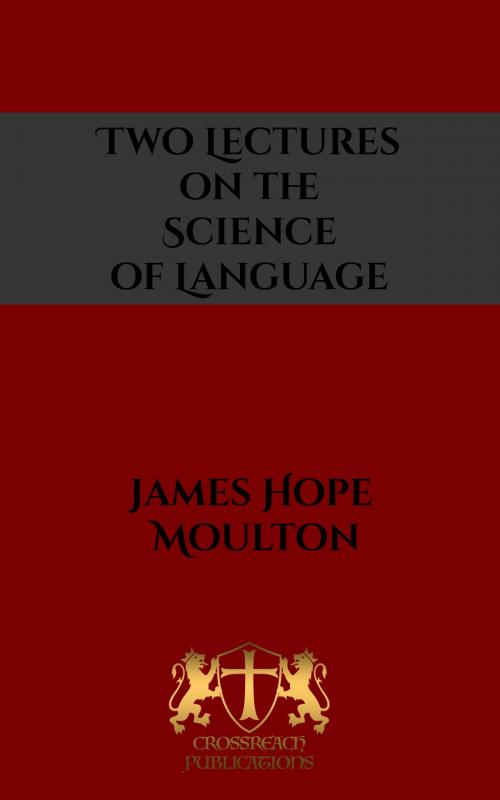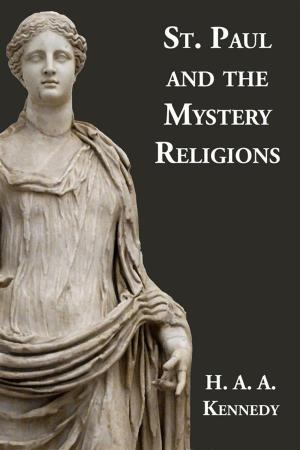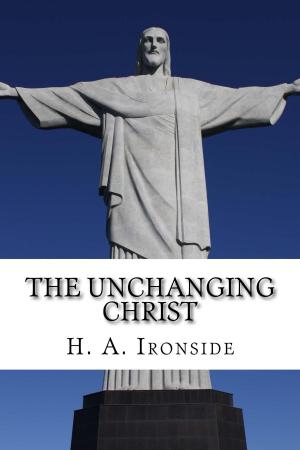Two Lectures on the Science of Language
Nonfiction, Reference & Language, Language Arts, Education & Teaching| Author: | James Hope Moulton | ISBN: | 1230001939194 |
| Publisher: | CrossReach Publications | Publication: | September 27, 2017 |
| Imprint: | Language: | English |
| Author: | James Hope Moulton |
| ISBN: | 1230001939194 |
| Publisher: | CrossReach Publications |
| Publication: | September 27, 2017 |
| Imprint: | |
| Language: | English |
This little book consists of two lectures delivered on August 19th and 20th, 1902, to students of the University Extension at Cambridge. In deference to the kindly expressed wish of many in my audience, and in view of the non-existence (so far as I know) of anything in English giving a purely popular introduction to the Science of Language in its latest developments, I ventured to offer the lectures to the University Press for publication, hoping that they might serve to stimulate interest in a most fascinating study, sadly neglected in this country. I was encouraged in this resolution by my friend Professor Ridgeway, who very kindly read the lectures in MS. and helped me with many suggestions. The first lecture is printed nearly as delivered; the second, which was given extempore, was written out immediately after, and follows the general lines of my notes. I have added a brief Bibliography for those who may be tempted to pursue the study. It seemed best to preserve the lecture form, which to some extent mitigates the apparent absurdity of putting such a title as “The Science of Language” over a booklet of fifty or sixty pages. There are many things here which would be out of place in a scientific summary: there are many things absent which even an article for a small encyclopaedia ought to contain. Popular lectures will only be expected to include what will rouse interest and lead to further reading. As such I venture to put forth what is almost the only published product of my sixteen years’ teaching in Cambridge, so far as the general subject is concerned. Writing from a new sphere, where Hellenistic Greek will claim yet more rigorously the time that might have been given to Comparative Philology, I feel as if I were hanging a votiva tabula in the temple of Aius Locutius—if that shadowy divinity may be persuaded to take under his patronage a subject so clearly appropriate to him.
This little book consists of two lectures delivered on August 19th and 20th, 1902, to students of the University Extension at Cambridge. In deference to the kindly expressed wish of many in my audience, and in view of the non-existence (so far as I know) of anything in English giving a purely popular introduction to the Science of Language in its latest developments, I ventured to offer the lectures to the University Press for publication, hoping that they might serve to stimulate interest in a most fascinating study, sadly neglected in this country. I was encouraged in this resolution by my friend Professor Ridgeway, who very kindly read the lectures in MS. and helped me with many suggestions. The first lecture is printed nearly as delivered; the second, which was given extempore, was written out immediately after, and follows the general lines of my notes. I have added a brief Bibliography for those who may be tempted to pursue the study. It seemed best to preserve the lecture form, which to some extent mitigates the apparent absurdity of putting such a title as “The Science of Language” over a booklet of fifty or sixty pages. There are many things here which would be out of place in a scientific summary: there are many things absent which even an article for a small encyclopaedia ought to contain. Popular lectures will only be expected to include what will rouse interest and lead to further reading. As such I venture to put forth what is almost the only published product of my sixteen years’ teaching in Cambridge, so far as the general subject is concerned. Writing from a new sphere, where Hellenistic Greek will claim yet more rigorously the time that might have been given to Comparative Philology, I feel as if I were hanging a votiva tabula in the temple of Aius Locutius—if that shadowy divinity may be persuaded to take under his patronage a subject so clearly appropriate to him.















